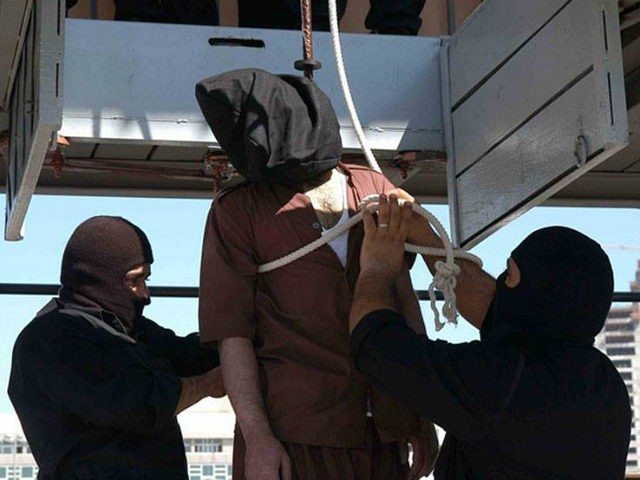Kuwait hanged seven prisoners on Wednesday, among them Sheikh Faisal Abdullah al-Jaber al-Sabah, believed to be the first member of a Gulf oil monarchy to face execution.
Al-Sabah was convicted of premeditated murder and illegal possession of a firearm after killing his nephew in 2010, according to Reuters.
The victim, Sheikh Basel Salem Sabah al-Salem al-Sabah, was also a prince. He was the murderer’s nephew but was 20 years older than his uncle Sheikh Faisal. Basel’s father was Kuwait’s ambassador to the United States between 1970 and 1975.
As the Khaleej Times tells the tale, the wheelchair-bound Sheikh Basel was invited to a private conversation at the Maseelah Palace by Sheikh Faisal, who proceeded to shoot him 5 to 7 times at close range with his army service pistol. Kuwaiti officials have not been forthcoming about why Faisal did this, aside from ruling out “political motives” for the killing.
The prisoners hanged along with Faisal included a woman who set fire to a tent at her husband’s second wedding, killing over 40 women and children, plus three men and two women from Bangladesh, Egypt, Ethiopia, and the Philippines. According to Reuters, their offenses included “murder, attempted murder, kidnapping and rape.”
Sky News reports the Filipino woman was a former nanny convicted of killing her employer’s daughter. “Migrant workers such as Ms Pawa are over-represented in death penalty and execution statistics across the Persian Gulf, where they frequently suffer from a lack of legal representation and may be deprived of a court translator,” the report notes.
These were Kuwait’s first executions since 2013 and came shortly after Bahrain’s first executions in seven years, part of a resurgence in death sentences across the Gulf States.
“Those executed include young people who were children when they were arrested, political protesters, and people who were tortured into bogus ‘confessions,'” director Harriet McCulloch of the anti-death-penalty group Reprieve told Sky News. “This sweeping and illegal use of the death penalty has nothing to do with justice or the rule of law.”

COMMENTS
Please let us know if you're having issues with commenting.